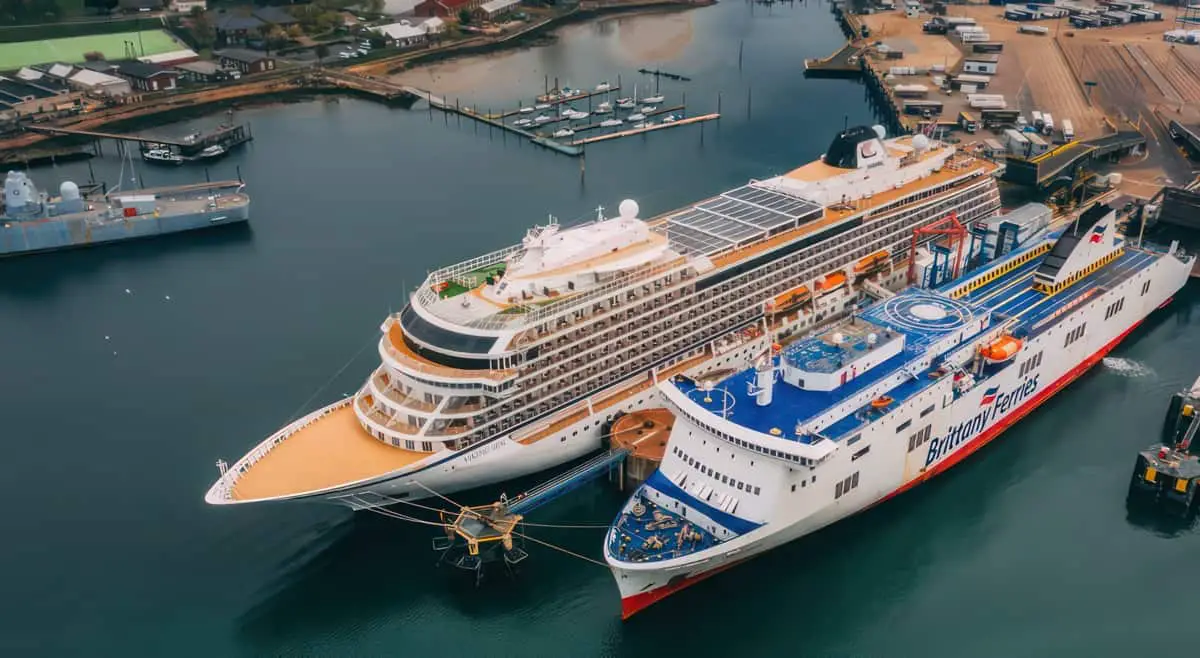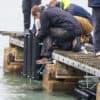Portsmouth International Port (PIP) could become “the first carbon neutral port in the whole country” after Portsmouth City councillors approved shore power funding.
The SEA CHANGE project, given the green light by Portsmouth City Councillors, will enable ships to “plug in” and switch off their engines while docked at three of the busiest berths within PIP – reducing carbon emissions and pollutants across the city.
Capital cost of £26.1 million
This new system will also charge two hybrid/liquefied natural gas vessels, supplied by Brittany Ferries, that will use electric power to enter and leave the harbour.
The total capital cost for the scheme runs at £26.1 million, through a £18.474m grant from the government’s Zero Emission Vessels and Infrastructure fund, £4.635m in prudential borrowing, and £3m from council reserves.
Port of Southampton
In February 2022, Associated British Ports (ABP)’s Port of Southampton celebrated the successful commissioning and use of its shore power facility for cruise ships.
Their total shore power project cost was £9m, supported by a grant from the Solent Local Growth Deal, arranged through the Solent Local Enterprise Partnership (LEP).
Vernon-Jackson: A really good example of long-term ambition
Portsmouth City Councillor, Gerald Vernon-Jackson (LibDem), cabinet lead for transport, thanked members “across all parties” for unanimously agreeing to invest £3m in essential infrastructure upgrades earlier this year, even with financial uncertainty.
He added,
“We had to find that out of our own money, we had to invest it at risk, not knowing whether we were going to get anything from government.
“I think this is a really good example of long-term ambition – we’re going to have a project which is going to take us to having the first carbon-neutral port in the whole country.
“Of the 1,100 ship movements of the Brittany Ferries coming into the port, their new contract will say they have to plug in. They might not like the electricity prices at the moment but they’ll have to plug in.”
Smyth: Poorest parts of city will have cleaner air in the future
Labour councillor Judith Smyth said that of the five years she’s been a councillor this is what she’s “most proud of” adding “I think it’s a fantastic achievement”.
“It should reduce the poor air quality that’s over the poorest parts of our city, we can be more confident that people living in the middle part of Portsmouth, which is very densely occupied with families, will have cleaner air in the future.”
This article is from the BBC’s LDRS (Local Democracy Reporter Service) scheme, which News OnTheWight is part of. Read here to find about more about how that scheme works on the Island. Some alterations and additions may have been made by News OnTheWight. Ed





